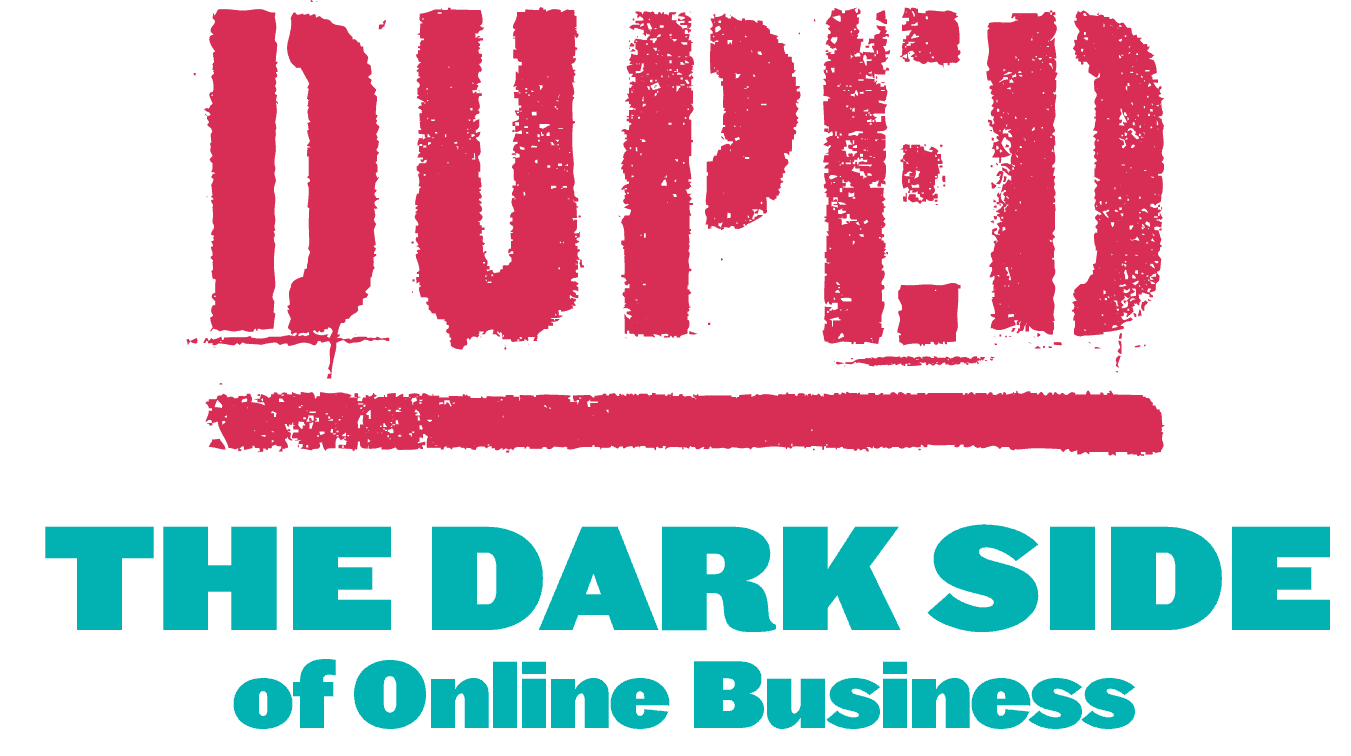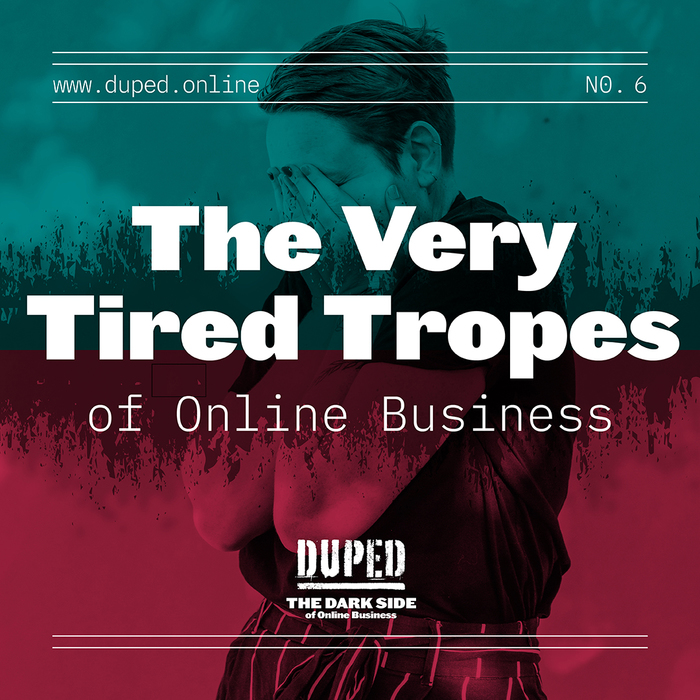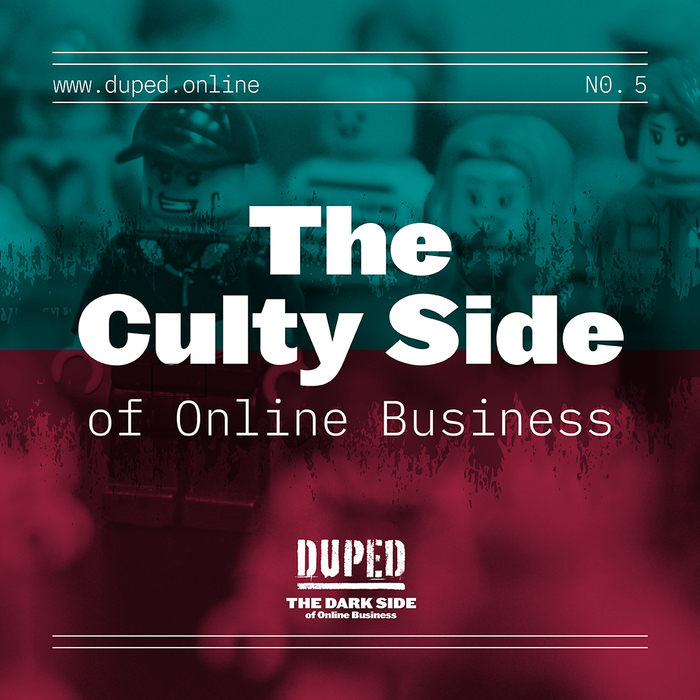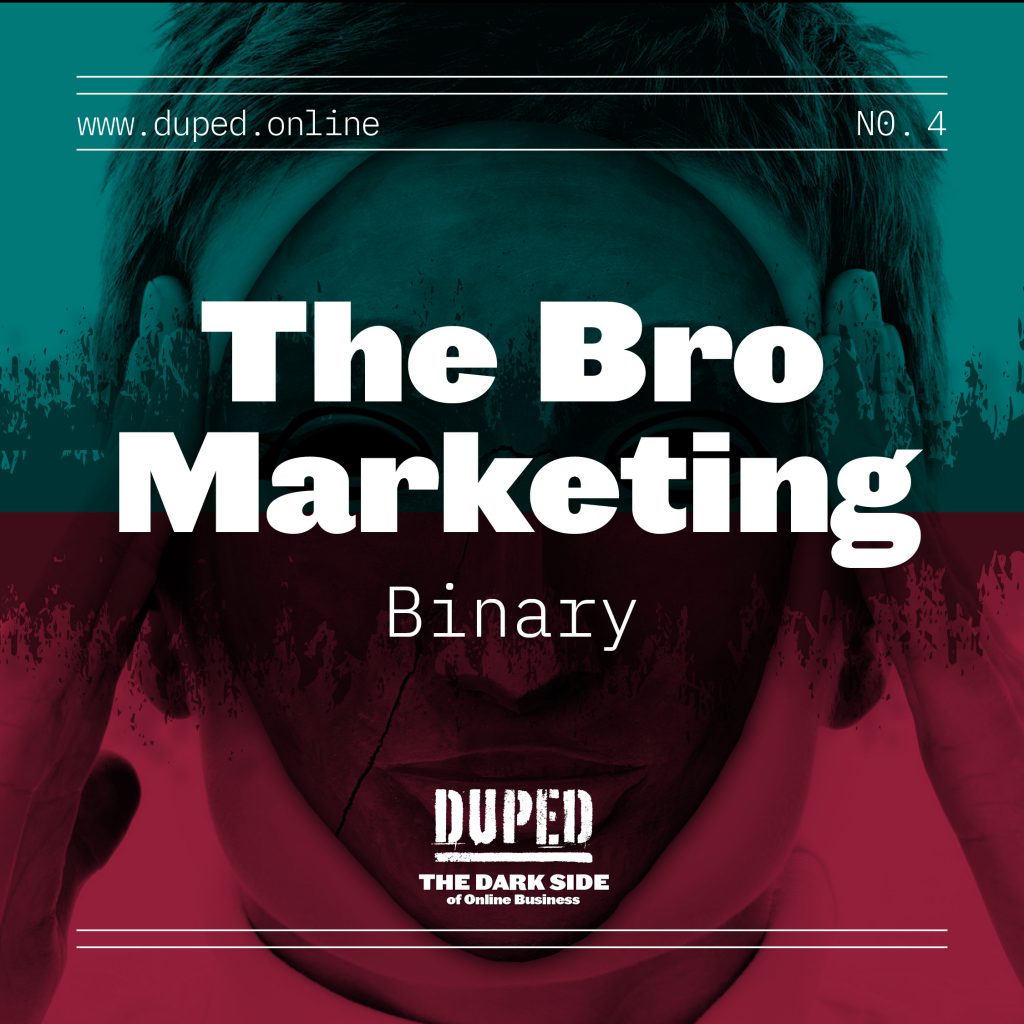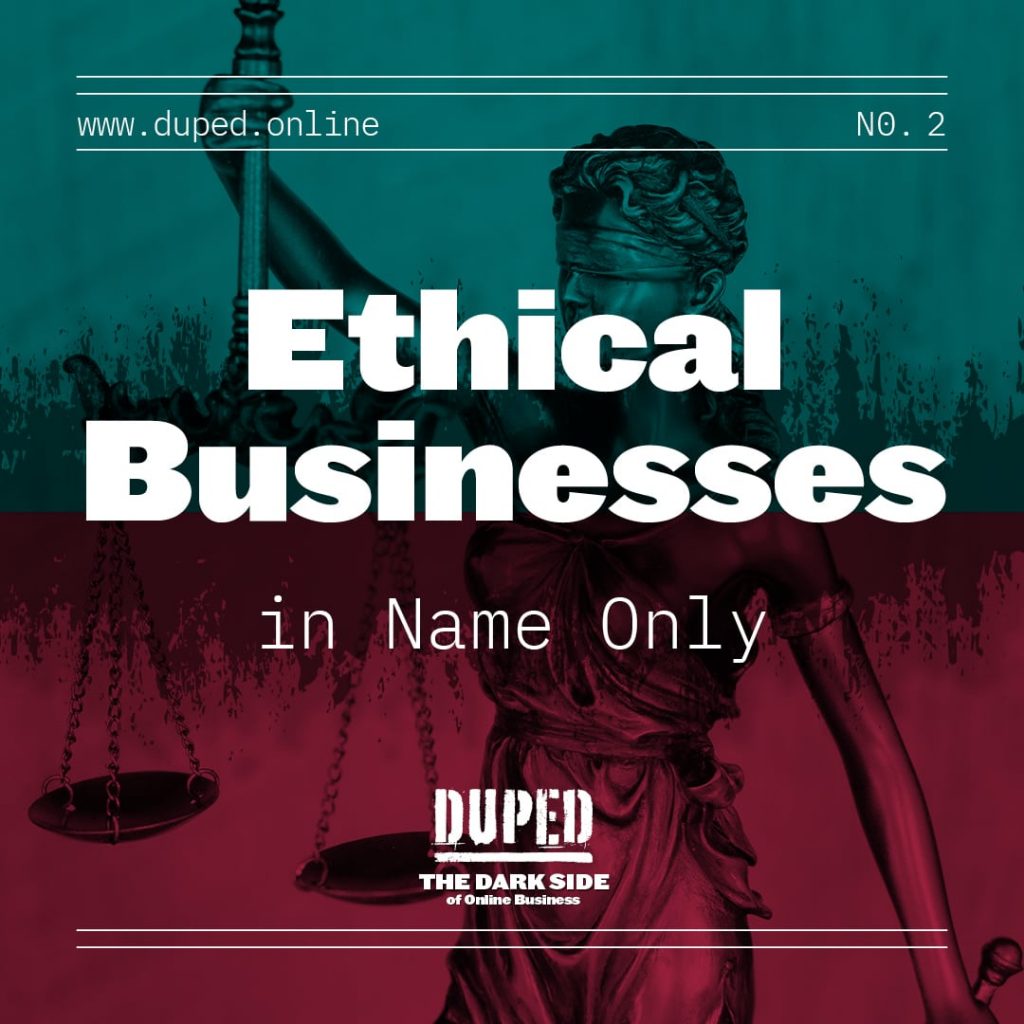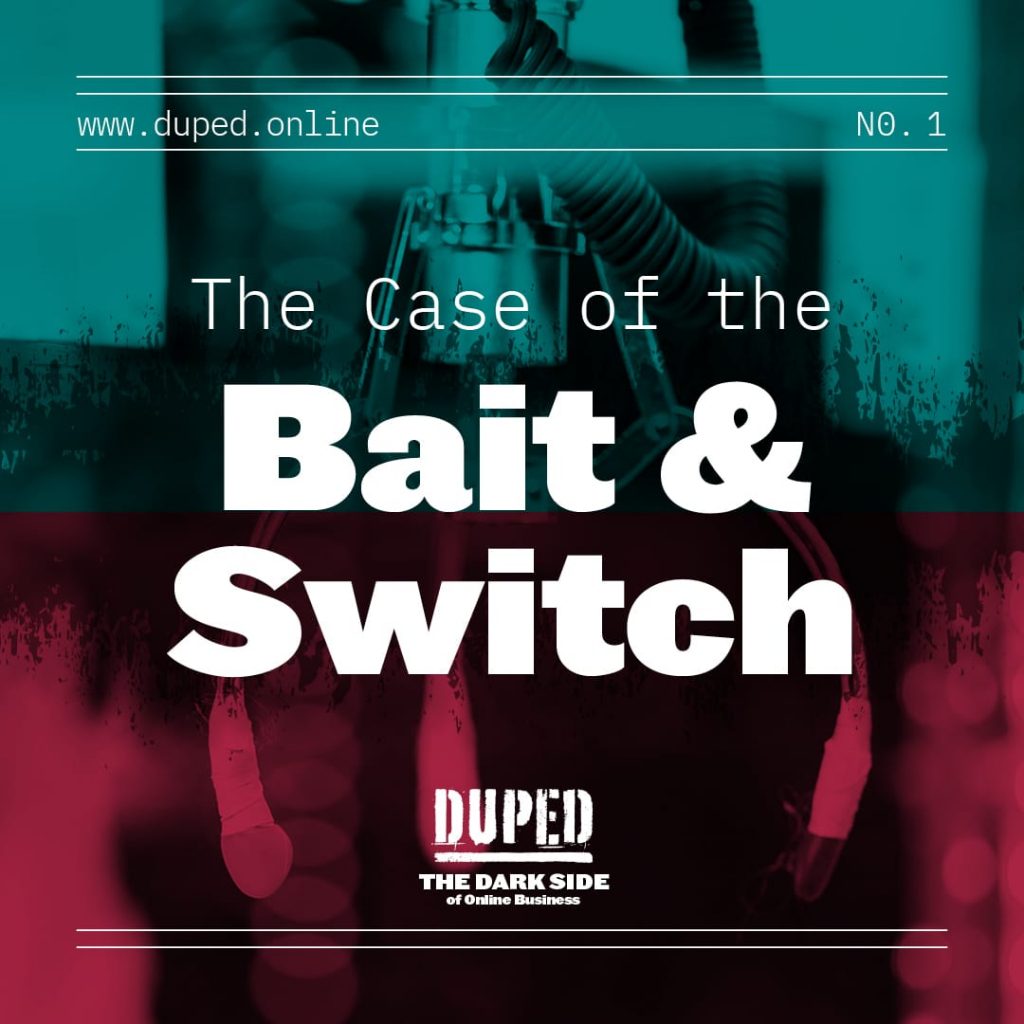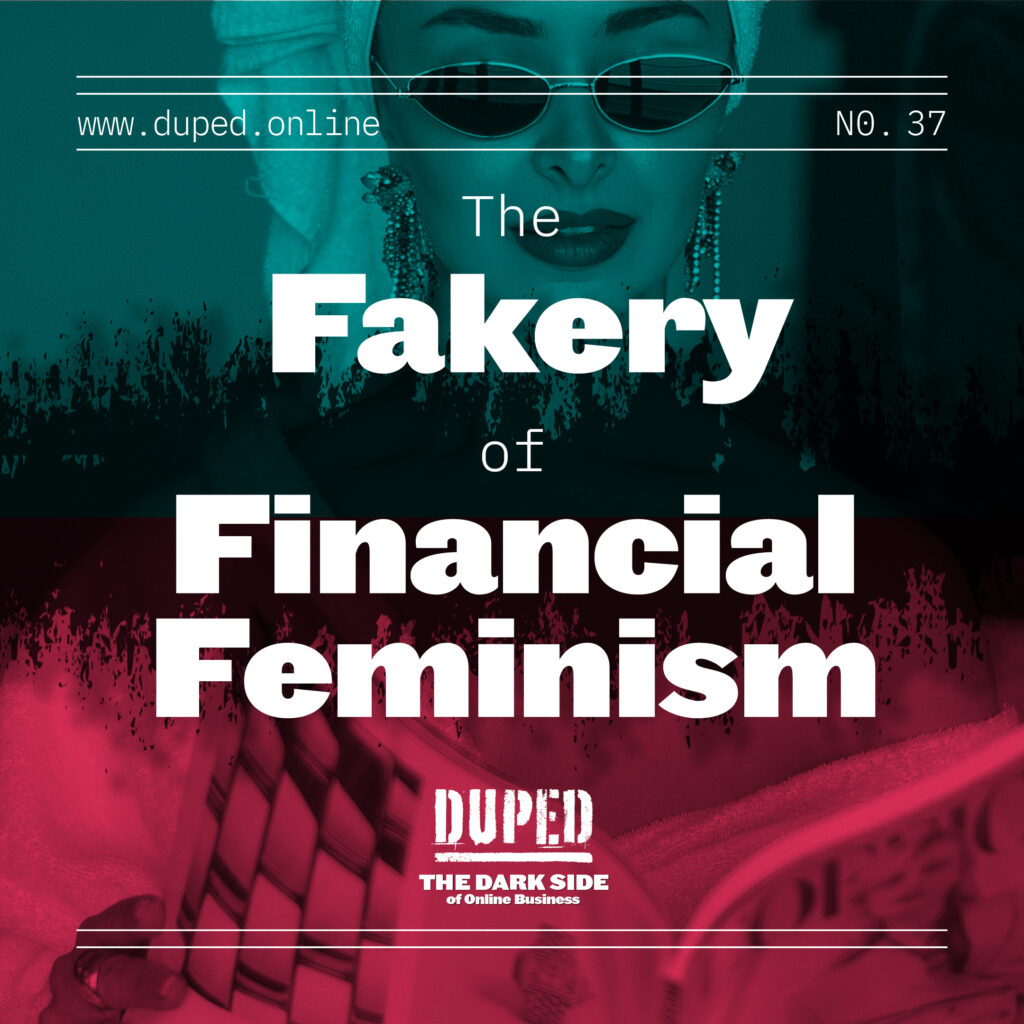
The Fakery of Financial Feminism
Online business sells the dream of being “financially free” to women from all walks of life. And that with a certain amount of money, each of us will have the power to change the world. Welcome to the fakery of financial feminism, where we’re being pushed to play bigger, but are we even benefiting?

Let’s kick off this episode by defining what we mean by financial feminism, as there are many ways to interpret it. At a high level, it’s about women taking control of their finances and tackling the wage and wealth gap.
Given that women continue to earn less, even as entrepreneurs, that’s something we can get behind. In owning a business, there’s a clear disparity between the revenue of businesses owned by men and women.
We want to acknowledge that for this episode, we will refer to “women” as that’s the available data and research. Our definition of women includes anyone who identifies as a woman, and as always, this conversation is layered and nuanced.
Speaking of nuance, you may be wondering why we’re talking about this. After all, wouldn’t we want all women to have control of their money and the freedom that comes with that?
The short answer is yes. Absolutely. But there’s more to it. Within online business circles, we tend to see financial feminism, which is about acquiring wealth, fame, and power from making millions.
This is white feminism at its finest. It’s not intersectional.
Intersectionality was coined by civil rights activist and legal scholar Kimberlé Crenshaw in 1989. Intersectional feminism is about the interplay of different types of discrimination. That interconnection is largely ignored by coaches and teachers in the online space who are trying to help women attain financial freedom through their businesses.
One of the most prevalent messages is that we should be chasing a big revenue goal as women business owners. When you consider what it may take to get to that revenue goal, the entire premise of financial feminism falls apart.
Financial Feminism Offers Shallow Solutions
While we all need money to survive capitalism, women and marginalized individuals are absolutely at a disadvantage. The odds are not in our favor.
In our episode on the myth of the million-dollar business, we ran through the numbers, so we want to get to the heart of this episode.
Why are we putting any type of aspirational number to this, and if we don’t do this we’re seen as unwilling or scared to live up to our full potential?
The narrative around how much money we should all be making in our business never accounts for the fact that, at a certain point, to do that, we’ll need to rely on extractive or exploitative business practices.
To quote journalist and radical feminist critic Vivian Gornick, “There is no way, none, for anyone in this society to make a great deal of money without exploiting other people.”
The conversation about financial feminism in the online business world is about the accumulation of wealth and a whole lot of aspirational bullshit. It weaponizes our lack of financial literacy and manipulates us into thinking we need to do business in a certain way.
It’s fake AF and not doing what it claims to on the surface. Let’s look at some of the biggest ways it’s full of fakery.
Fake Out #1: Building a Business Equals Economic Power
One of the big promises of online business teachings targeting women is that our businesses are THE vehicle for gaining economic power. While many women are successful business owners, countless others are not.
But we only see the successes and not the string of failures. This is survivorship bias in action, as we don’t see the people deeply in debt from chasing the online business dream or the aftermath of investing with an unethical, unqualified coach.
There’s a complete failure to account for the gap between economic self-sufficiency and the dream we’re being sold in online business. You don’t have to have a multi-six or seven-figure business to be self-sufficient.
This relentless focus on ever-escalating markers of “success” really and truly is not about feminism at all. To quote bell hooks, “Some women’s liberationists encouraged women to believe their individual achievements of success, money, and power (especially in spheres historically dominated by men) advance feminist movement.”
All this does is build a bigger table when we need to set the table on fire entirely.
Plus, can we stop with the collective delusion that having a business is the only way to gain any type of economic power? Studies consistently show that employment is a much more stable and viable path for most people and inherently less risky.
Fake Out #2: This is How We Change the World
There’s a long-held belief that women exercise power differently. This absolutely can be the case, but it’s not a given.
Look at the difference between two women prime ministers, Margaret Thatcher in the UK and Jacinda Arden in New Zealand. As feminists, we’re conditioned to believe there are more Ardens than Thatchers.
The biggest names in the online business world are deeply entrenched in existing values and systems while engaging in business practices covered up by BS messaging about changing the world.
The insides and outsides of these businesses don’t match. They don’t walk their talk. Freedom and empowerment should not just be for the business owner but for everyone, including their teams and clients.
In preparing for this episode, I asked on Threads about examples of this, and Susana Baker Boey responded, “We’ve been sold that getting rich helps the collective community. That our wealth trickles down to other people we hire, but we’re also encouraged to pay as little as possible to keep profits high. It’s basically trickle-down economics but in pink.”
In that same thread, Brittany Berger pointed out that we need to stop thinking “capitalism and feminism are compatible.”
Fake Out #3: You’re Playing Small
As research, I read multiple books focused on helping women take control of their financial future. A common refrain was that “your net worth is not your self-worth,” yet these authors are talking out both sides of their mouths.
I fully agree your net worth is not your self-worth, but there’s a massive focus in these books on not just having economic security but becoming wildly wealthy. It’s the ultimate mixed message as they turn around and lean heavily into a money mindset.
To be clear – money mindset is real and valid work. But the underlying message is that as women, we’re scared to live up to our fullest potential and are taught to play small.
Yes, women are conditioned this way, BUT these books go too damn far and essentially work to persuade the reader that you need a lot of fucking money to stick it to the “man.” And that if you don’t do that, you’re failing somehow as not just a business owner but as a feminist.
So much of this is designed to get us to buy things from books to courses to programs to multi-six-figure masterminds and VIP days. They flaunt their wealth as a possibility for all of us, with very little acknowledgment of systemic realities beyond the surface level.
Not being willing to buy into this dream doesn’t mean you’re playing small. It means you’re not falling prey to this manipulation.
Other Common Fake Outs To Watch For
We don’t want this episode to be three hours long, so here’s a rapid-fire round of other fake outs that are commonly seen under the guise of financial feminism:
- Manifestation and magical thinking.
- Spending money to make money/investing in yourself.
- You need to hire help to free yourself up to make more money.
- That we can all be wealthy, I did it and you can too.
- Use of inspiration porn.
And our favorite… women should support women. The fact is, women do shitty things just like men. We have so many examples of women-owned, online businesses doing deeply problematic things in the name of feminism.
A great example of this in action is the over-the-top prices charged in the name of feminism and freedom. Or executing specific tactics like asking for pay in full with a side helping of good old-fashioned guilt.
To wrap up this episode, we want to leave you with a quote from bell hooks, “Future feminist movements will be sustained only if the needs of masses of women are addressed.”
What we’re being offered in online business is an individual solution to a wider problem that goes beyond anyone making more money in their business. The masses aren’t being helped by a select few attaining wealth, power and fame.
If you take anything away from this episode, it’s that we shouldn’t buy that any of these people encouraging us to chase wealth give a flying fig about collective liberation or feminism. We don’t get free by buying mansions and showing off our red-bottom shoes.
Links For This Episode:
Join the

Patreon

for only $7/month and get a
monthly bonus episode,
behind-the-scenes content
and more.
Recent Episodes of Duped
- « Previous
- 1
- …
- 4
- 5
- 6
